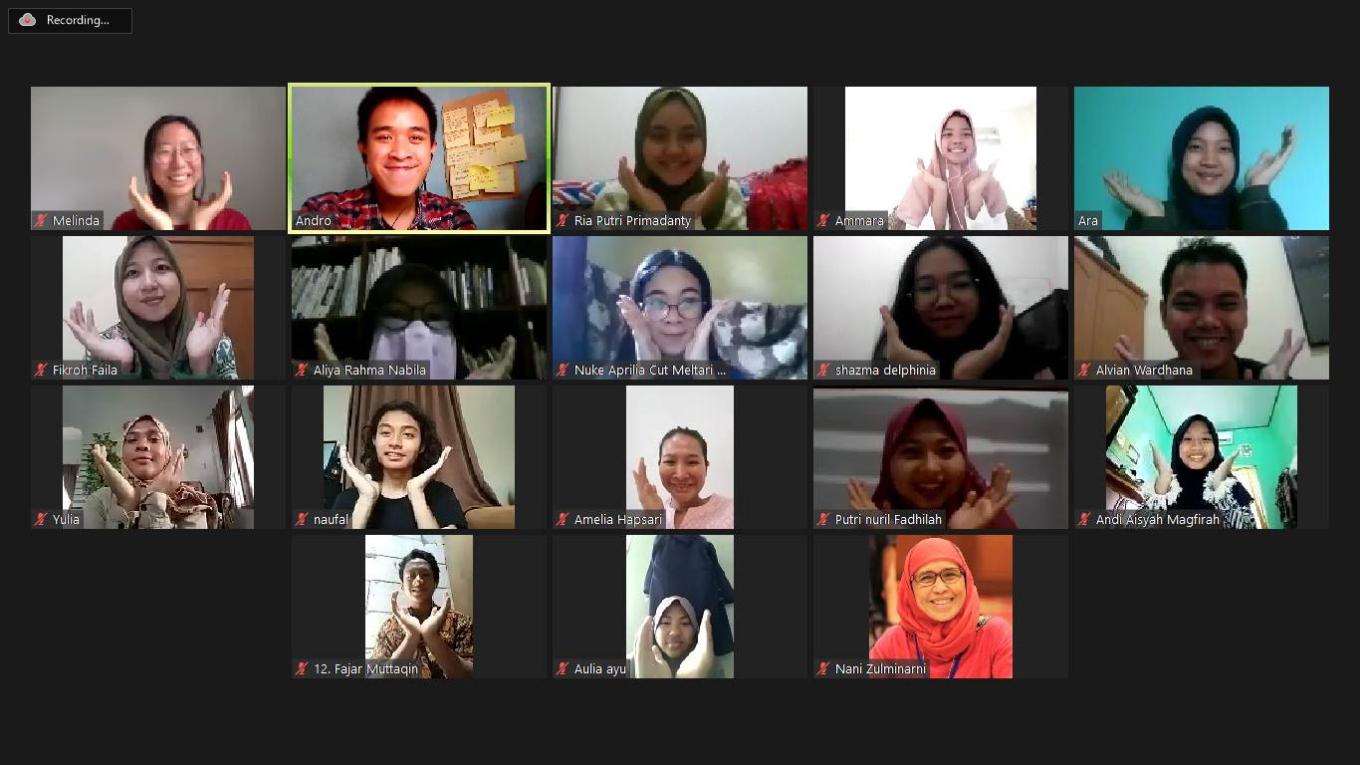
By Colleen DeGuzman
Nearly a full year has passed since we moved many of our gatherings — and much of our lives — online. The founder of TeenChanger, an organization that guides young people to launch their own ideas for social change, Ara Kusuma has experienced both the benefits and drawbacks of virtual organizing in 2020.
At the age of 10, Ara started an initiative to make dairy production more sustainable in Indonesia. Today she’s bringing her peers together to advance positive change in countless ways — sometimes from opposite sides of the world.
We spoke with Ara about why she sees online events in terms of opportunity and her tips for making them as powerful as possible.
Increase inclusivity
In the summer of 2020, Ara hosted a virtual workshop that brought together around 20 young changemakers , each working to solve problems in their communities, through Ashoka’s initiative for young leaders. And though she is based in Indonesia, the workshop didn’t have to be — the virtual environment removed any distance barriers. They also hosted a public online summit for changemakers to share their thoughts and experiences.
“Previously when we did an in-person event, those who could attend were only the ones who could access them geographically,” Ara says. “Which means usually we had events in big cities where it’s more densely populated, but those who lived there were the only ones who could attend.”
Typically Ara’s team would host events in Java, an island of Indonesia that is highly populated and is home of the country’s capital, Jakarta. However, online platforms allow those who live anywhere in the nation — and really, anyone in the world — has the ability to take part in the workshop.
“Globally, everyone can attend and that carries our mindset of going big,” Ara says. “Since we are going online, we are able to not only aim for those locally, but also nationally and internationally.”
Over 500 participants, 16 changemaker panelists, and 30 young event coordinators tuned in to learn from each other. And several live translators throughout the event helped to close language gaps.
(Re)consider cost
With online events, overhead dramatically goes down. No banners or flyers. Speakers do not have to fly in. Catering does not have to be ordered.
Ara says hosting an online workshop is extremely cost efficient, eliminating any added expenses of putting on an extravagant event: “Apart from the electricity that we used we did not have any food waste or other things that would be usually spent in an event.” Without travel, they also cut down on the event’s carbon footprint.
Connection matters more than ever
One of the most important skills she learned while hosting the workshop, Ara says, was helping attendees make meaningful connections despite the distance separating them.
The key to this, she says, is understanding that it takes time for relationships to build.
That’s why, for weeks before the workshop began, participants were already getting to know each other and their projects. When they logged on to the virtual event for the first time, it was not their first time meeting each other.
“They were sharing stories online and on Instagram, building momentum before the event itself,” Ara says. “Engagement is an important part of everything, and so in this case, we had them engaged before the event, during the sessions, and in chats on the side throughout the whole thing — the key to it was the engagement we created.”
To add even more engagement, Ara’s team made the sessions interactive, with polls that asked participants whether they agreed or disagreed with different statements. After the polls closed, the floor would open for discussion.
“My advice for those going to do an online event is to find that human connection and the ground connection despite us being hundreds and hundreds of miles away,” she says.
Put purpose at the center
Technology can seem intimidating, but Ara suggests keeping in mind that it is just the means of connection. The purpose behind connecting is the most important part, and should be at the forefront for any initiative.
“Really, really find that humanity and the connection and build the event based on the purpose, not on trends,” she said. “Decide on your purpose, [then] decide how you want to achieve that vision.”
